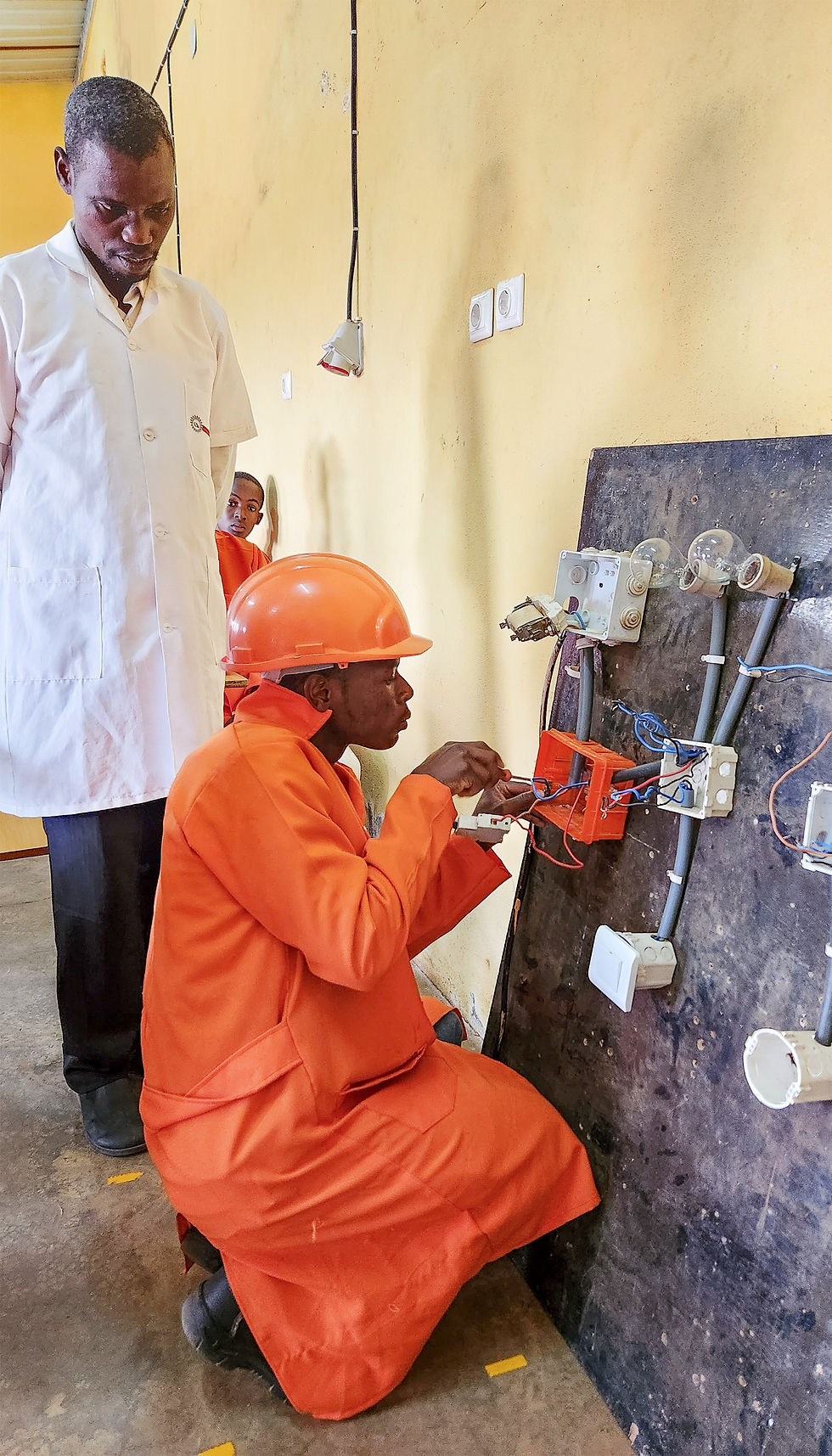Fokusthema
Bildung und Einkommen –
aus der Armut ausbrechen
Um den Teufelskreis der Armut zu durchbrechen, brauchen Menschen eine gute Schul- und Berufsbildung für sichere Zukunftsaussichten sowie die Chance auf ein besseres Einkommen.
Der begrenzte Zugang zu Bildung ist einer der Hauptgründe dafür, dass Generationen von Familien sich nicht aus der Armut befreien können. Obwohl die Zahl der Kinder, die eine Grundschule besuchen, in den letzten Jahrzehnten gestiegen ist, ist die Qualität der Bildung in vielen Ländern nach wie vor ungenügend.
Wir ermöglichen Menschen eine solide Bildung, da wir überzeugt sind, dass eine gute Bildung, die Chance auf eine Beschäftigung und ein besseres Einkommen erhöht, den Frieden fördert sowie die Geschlechtergleichstellung und die Zivilgesellschaft stärkt.
Wir engagieren uns, menschenwürdige Beschäftigungsmöglichkeiten und nachhaltige Lebensgrundlagen zu schaffen, welche von zentraler Bedeutung für die Armutsbekämpfung sind. Auch die prekäre Situation von Kleinbauernfamilien wird berücksichtigt und kann durch die wirtschaftliche Entwicklung des ländlichen Raums nachhaltig verbessert werden.
Facts
Weltweit leben 839 Millionen Menschen in extremer Armut – 71 % davon im subsaharischem Afrika.
Statista (2025). Anzahl der Menschen in absoluter Armut nach Weltregionen von 1990 bis 2024.
Unsere Handlungsfelder
Unser Wirken orientiert sich an den Sustainable Development Goals (SDGs) der Vereinten Nationen (UN).
SDG 1
Keine Armut
Armut in all ihren Formen und überall beenden.
SDG 4
Hochwertige Bildung
Inklusive, gleichberechtigte und hochwertige Bildung gewährleisten und Möglichkeiten lebenslangen Lernens für alle fördern.
SDG 8
Menschenwürdige Arbeit und Wirtschaftswachstum
Dauerhaftes, breitenwirksames und nachhaltiges Wirtschaftswachstum, produktive Vollbeschäftigung und menschenwürdige Arbeit für alle fördern.
Unser Engagement
Die Lebensgrundlagen der ländlichen Gemeinschaften werden verbessert, indem der Zugang zu sauberem Wasser und sanitären Einrichtungen gefördert sowie die Bildungsqualität, die Gesundheit und die wirtschaftliche Situation gestärkt wird.
In Solidaritätsgruppen organisierte Menschen in Madagaskar arbeiten auf ein nachhaltiges Ernährungs-system und bessere Lebensbedingungen hin.
Die Lebensgrundlagen der ländlichen Gemeinschaften werden verbessert, indem der Zugang zu sauberem Wasser und sanitären Einrichtungen gefördert sowie die Bildungsqualität, die Gesundheit und die wirtschaftliche Situation gestärkt wird.
Globethics ist ein Netzwerk von Lehrkräften und Einrichtungen mit der Vision, Ethik nachhaltig in der Hochschulbildung zu verankern.
Sehr wenigen Jugendlichen in Madagaskar, insbesondere im ländlichen Raum, gelingt der Einstieg ins Erwerbsleben.
Für ein besseres Leben in «Bidibidi»: Bessere Ernährung, mehr Einkommen und friedliche Koexistenz im Settlement des Flüchtlinglagers.
Kleinbauern und -bäuerinnen den Zugang zu Beratungsdienstleistungen und Märkten erleichtern, damit sie ihr Wissen und ihre Fähigkeiten verbessern können.









